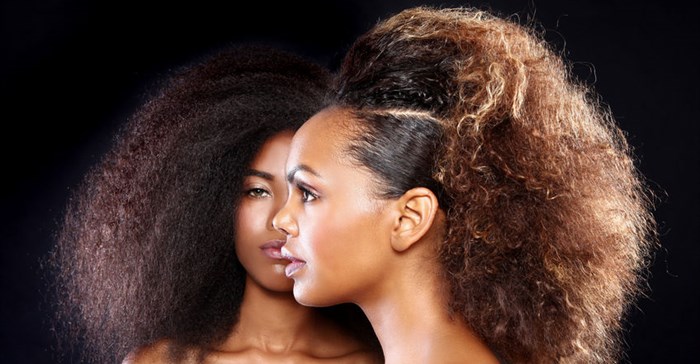
The $7.6 billion can be separated into wet hair and dry hair, worth $1.1 billion and $6 billion, respectively. Wet hair includes hair-care products such as shampoo and conditioner, while dry hair comprises weaves, extensions and wigs.
Indique supplies hair to individuals and salons across South Africa and Africa. The brand has 17 stores in the US and one in Luanda, Angola. In Africa, its flagship store is based in Rosebank. It also runs its own salon on the premises.
Dry hair comprises remy hair and non-remy hair. "Remy hair is temple hair because it literally comes from temples in India. It is hair that is cut at temples because of religious beliefs. The temples used to discard the hair, but now they auction to manufacturers," Agi Jones the MD of VHB, Indique sub-Saharan Africa explained.
Remy hair has its original structure in place. "The cuticle of the hair is still intact and runs in one direction. Non-remy hair is hair collected from various sources and then bundled together. So the cuticles are not all running in the same direction. Therefore, the hair is dipped in acid and the cuticle is worn off. It is then dipped in silicone to coat the rough edges left behind."
Of the two, remy hair is the more sought after, and it will also cost you more. Indique supplies six collections, all of which are from India, except one (from South East Asia). The hair is sold in tubes. Three tubes, or 24 inches, will take your hair to shoulder length. What you pay will vary according to what you want he says. "Some women want length, others fullness. The price can vary from a couple of thousand rand to R12,000 or more.
Contrary to popular belief, black women are not the biggest buyers of human hair - white women are. However, black women are the biggest buyers of synthetic hair. This market is huge because it is mass produced and sold in the FMCG realm in stores such as Dischem to Macro. This is mainly targeted at black women.
However, whether the client is a top-end or lower-end client, the aspiration is the same. "For some this is an aspiration to the standard of beauty on the runways, while for others it is about wearing what makes you feel beautiful. For others it is a question of convenience and a way to escape the daily routine of hair care," said Jones.
"If you're getting up at 4am to catch a taxi to work every day, you need solutions to manage your lifestyle, which includes your hair. Something that is quick and convenient, like an extension," he explained.
It is the same, he said for a working mother who is a busy executive who also needs to manage her hair without spending too much time on its maintenance. It is this end of the market that makes up Indique's clientele.
"We assist our clients by conducting a 30- to 45-minute lifestyle consultation to help them find the look that most suits them while also fitting into their lifestyle."
While they do some marketing using traditional media, their main marketing is through influencers and with celebrities, especially in the US with popular singer Rhianna and Hunger Games star Jennifer Lawrence, just two of many who use their product. While they have tried the celebrity route in South Africa with local celebrities, many of whom already purchase hair from them, it has not been as successful a route as in the US.
Other than the one or two successful partnerships with local celebrities, Jones added that for their market, they have found that world of mouth works best.
